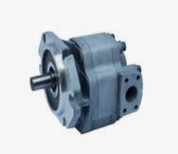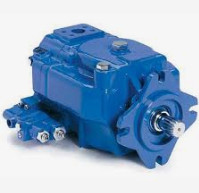Design and Realization of Fault Simulation Test for Aviation Hydraulic Pump

ABSTRACT: This paper introduces the design and implementation process of fault simulation test for aero-hydraulic pump. The fault mechanism of hydraulic pump is sorted out from the angle of investigation and statistics. Through the analysis of FMECA, the typical arrays of hydraulic pumps are defined, the monitoring parameters and sensor layout are determined, and the fault simulation approaches and means of three types of fault modes are elaborated in detail. It lays a foundation for the recurrence of hydraulic pump failure and the accurate diagnosis of hydraulic pump failure.
Key words: hydraulic pump; monitoring parameters; sensor layout; fault simulation test

Aviation hydraulic chestnut is the core accessory of aircraft hydraulic system. Because of the influence of processing accuracy and bad environment, it is easy to cause friction. In addition, the structure of hydraulic chestnut is complex and the working conditions are changeable, so the occurrence of the accident has the characteristics of uncertainty and concealment.
In order to realize the recurrence of hydraulic Ju fault and further improve the ability of fault diagnosis and prediction of aircraft hydraulic pump, it is particularly important to carry out the research on the design and implementation of hydraulic chestnut fault simulation test.
The design of hydraulic pump fault simulation test is to obtain the performance parameters data of normal conditions and different fault modes. It is mainly used in the research of fault diagnosis and prediction. The mapping relationship between fault modes and symptomatic parameters can be determined by data information.
The design and implementation of hydraulic pump fault simulation test are mainly based on the mechanism, FMECA analysis, monitoring parameter analysis and selection of hydraulic chestnut fault. According to the mechanism, phenomenon and cause of hydraulic pump fault, the typical fault modes and monitoring parameters are determined. On this basis, the fault simulation approaches of three types of fault modes are expounded. Means can provide technical support for PHM verification of aviation hydraulic pump.
Through field investigation and statistics and historical experience analysis, it is concluded that the main causes of mechanical failure of hydraulic chestnut are fatigue failure caused by installation accuracy, material organization, sudden working conditions, etc. The main causes of failure affecting the performance of hydraulic chestnut are oil pollution and wear of its own structural components, and blockage of the key parts of the chestnut caused by oil pollutants. Plug.
The failure mechanism of hydraulic chestnut is mainly caused by internal wear. Through investigation and theoretical analysis of material wear, the friction pairs of cylinder block/oil distribution pan and plunger/cylinder bore are the key friction pairs affecting the working performance of hydraulic oil pump. During the operation of hydraulic chestnut, the increase of moment coefficient between key friction pairs leads to worsening friction, uneven lubrication of oil film between friction pairs and dry friction of material surface, which results in fatigue wear and tearing of the surface between friction pairs, enlargement of movement clearance and decrease of volumetric efficiency, and ultimately leads to failure.